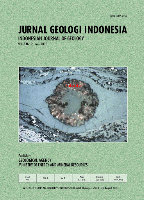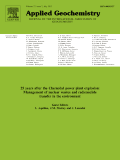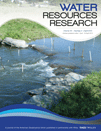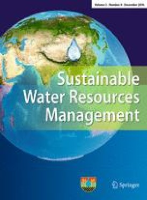
Acque Sotterranee-Italian Journal of Groundwater
Scope & Guideline
Connecting global scholars in groundwater science.
Introduction
Aims and Scopes
- Hydrogeological Studies:
The journal emphasizes detailed hydrogeological investigations, including the characterization of aquifers, groundwater flow dynamics, and the assessment of groundwater resources. - Groundwater Management and Policy:
It addresses the governance, planning, and regulatory aspects of groundwater management, focusing on sustainable practices and the integration of scientific research into policy-making. - Geothermal Energy and Resources:
The journal explores the utilization of geothermal energy, including shallow and deep geothermal systems, emphasizing their potential in sustainable energy transitions. - Hydrochemical and Isotopic Analysis:
Research on hydrochemical properties and isotopic compositions of groundwater is a core area, contributing to the understanding of groundwater quality and pollution sources. - Managed Aquifer Recharge (MAR):
The journal promotes studies on Managed Aquifer Recharge techniques, focusing on innovative approaches for enhancing groundwater recharge and sustainability. - Climate Change Impact:
There is a consistent focus on the effects of climate change on groundwater resources, exploring implications for water availability and management strategies.
Trending and Emerging
- Geothermal Energy Utilization:
There is an increasing trend in research related to geothermal energy, particularly in the context of climate change mitigation and sustainable energy practices, reflecting a growing interest in renewable energy sources. - Managed Aquifer Recharge (MAR) Techniques:
The focus on Managed Aquifer Recharge has intensified, with numerous studies exploring innovative MAR methods and their applications in various hydrogeological contexts, highlighting the importance of groundwater sustainability. - Impacts of Climate Change:
Research addressing the impacts of climate change on groundwater resources is gaining traction, with studies focusing on water scarcity, quality changes, and adaptive management strategies. - Integration of Advanced Technologies:
There is a notable increase in the application of advanced technologies such as GIS, remote sensing, and numerical modeling in groundwater studies, indicating a trend towards more sophisticated analytical methods. - Pollution and Contamination Studies:
Emerging concerns regarding groundwater pollution, particularly with respect to emerging contaminants, are reflected in recent publications focusing on geochemical modeling and remediation techniques.
Declining or Waning
- Historical Studies in Hydrogeology:
There seems to be a reduced emphasis on historical analyses of groundwater systems and practices, which were more prevalent in earlier years. Recent publications focus more on contemporary issues and technological advancements. - General Water Quality Assessments:
While water quality remains important, there is a noticeable decrease in general assessments of water quality across various aquifers, with more specific studies targeting particular contaminants or regions. - Traditional Hydrogeological Mapping:
The traditional approaches to hydrogeological mapping appear to be waning, as the journal shifts towards more integrated and technological methodologies such as remote sensing and GIS applications.
Similar Journals

Hydrology
Unlocking insights for effective water management.Hydrology, published by MDPI, is a prominent open-access journal dedicated to advancing the field of hydrological science. Since its establishment in 2014, the journal has garnered a reputation for excellence, reflected in its classification within the Q2 quartile for 2023 across multiple categories including Earth-Surface Processes, Oceanography, Water Science and Technology, and Waste Management and Disposal. Based in Switzerland, Hydrology provides a vital platform for scholars and practitioners to disseminate research findings, promote innovative methodologies, and foster discussions on current trends affecting water resources and management globally. The journal is easily accessible online and aims to significantly contribute to the understanding of hydrological processes, offering insights that are pivotal for addressing contemporary environmental challenges. With Scopus rankings showcasing its growing influence, Hydrology is a crucial resource for researchers, students, and professionals committed to water science and sustainable practices.

Indonesian Journal of Geoscience
Empowering Geoscientists with Open Access Insights.Indonesian Journal of Geoscience, published by the GEOLOGICAL AGENCY, is a vital platform for sharing cutting-edge research in the field of Earth and Planetary Sciences. With an ISSN of 2355-9314 and E-ISSN of 2355-9306, this open-access journal has been making significant contributions to the geoscientific community since its establishment in 2013. Operating out of Bandung, Indonesia, the journal is dedicated to disseminating high-quality research across diverse areas, making it an essential resource for researchers, professionals, and students alike. Recognized in the 2023 Q2 category in Earth and Planetary Sciences, it currently ranks #134/195 among general Earth and Planetary Sciences journals in Scopus, reflecting its growing prominence and academic rigor. The journal seeks to foster scientific discussions by publishing original research, reviews, and case studies that address contemporary challenges and advancements in geoscience, thus contributing to a deeper understanding of our planet. With its commitment to open access, the Indonesian Journal of Geoscience ensures that vital research is accessible to a global audience, encouraging collaboration and innovation in the field.

GEOLOGICA ACTA
Empowering geoscientists through accessible scholarship.GEOLOGICA ACTA is a distinguished open-access journal dedicated to the field of geology, published by Universitat de Barcelona since its inception in 2003. With an impact factor that reflects its relevance in the academic community and a commendable Q2 ranking within the Earth and Planetary Sciences category, this journal is committed to disseminating high-quality research that spans various aspects of geological sciences. The journal's broad scope encompasses both theoretical and applied research, making it a vital platform for researchers, professionals, and students alike to share their findings with a global audience. With its Open Access policy, GEOLOGICA ACTA ensures that all published articles are freely accessible, fostering collaboration and innovation in the geological community. Based in Barcelona, Spain, at the Geociences Barcelona (CSIC), it plays a pivotal role in connecting scholars from diverse backgrounds and advancing the field of geology through rigorous peer-reviewed articles.

APPLIED GEOCHEMISTRY
Connecting Geological Insights with Environmental SolutionsApplied Geochemistry is an esteemed peer-reviewed journal published by Pergamon-Elsevier Science Ltd, dedicated to advancing the field of geochemistry by exploring the intricate relationships between geological processes and environmental chemistry. With a significant impact factor and prestigious standing in various categories, including Environmental Chemistry, Geochemistry and Petrology, and Pollution, Applied Geochemistry is classified within the Q2 quartile, reflecting its influence and recognition in the scientific community. The journal spans research contributions from 1986 to the present, focusing on critical issues such as the impact of geochemical processes on the environment, the evaluation of pollution sources, and innovative methodologies in geochemical analysis. Through its rigorous publication standards, Applied Geochemistry serves as a vital resource for researchers, professionals, and students seeking to enrich their understanding of geochemical phenomena and their implications for environmental health. Please note that access to the journal is not open; therefore, institutional or individual subscriptions may be required for full-text viewing.

REVISTA MEXICANA DE CIENCIAS GEOLOGICAS
Innovating Geoscience Perspectives Since 1975REVISTA MEXICANA DE CIENCIAS GEOLOGICAS, published by the CENTRO GEOCIENCIAS UNAM, is a pivotal open-access journal in the field of geology since its inception in 1975. With an ISSN of 1026-8774 and an E-ISSN of 2007-2902, this journal plays a vital role in disseminating research findings that contribute to the understanding of geological processes, resources, and environmental challenges, particularly within a Latin American context. Although currently categorized in the Q4 quartile and ranked 244 out of 321 in the Earth and Planetary Sciences category on Scopus, the journal strives to increase its impact through rigorous peer-reviewed articles that emphasize innovative geological research. As a comprehensive resource for researchers, professionals, and students alike, REVISTA MEXICANA DE CIENCIAS GEOLOGICAS seeks to foster collaboration and knowledge exchange in the geosciences while promoting accessibility to vital information in Mexico and beyond. The journal accepts submissions in both English and Spanish, catering to a diverse audience and encouraging a wider dissemination of geological research. Explore the eclectic array of studies published from 1996 to 2024, as the journal continues to elevate and enrich the field of geology.

Water Resources
Fostering scholarly dialogue on critical water issues.Water Resources, a prominent journal published by MAIK NAUKA/INTERPERIODICA/SPRINGER, focuses on the critical and evolving field of water science and technology. Established in 1976 and with a long-standing commitment to advancing knowledge, this journal explores interdisciplinary research that addresses the challenges surrounding water resource management, quality, and sustainability. With an impact factor positioned within the Q3 category of its field, it holds a notable Scopus rank (#181/261) in Environmental Science, emphasizing its role in driving scholarly discourse. While currently not open access, Water Resources provides vital insights for researchers, professionals, and students, making it an essential resource for those seeking to innovate and implement effective water management solutions. To stay ahead in a domain that is increasingly paramount to global sustainability efforts, consider engaging with the latest research published in this vital journal.

Journal of Groundwater Science and Engineering
Advancing groundwater knowledge for a sustainable future.Journal of Groundwater Science and Engineering, published by GROUNDWATER SCIENCE & ENGINEERING LTD, is a prominent open access journal dedicated to the advancement of knowledge in the fields of groundwater science, technology, and management. Since its inception in 2017, this esteemed journal has rapidly gained recognition, achieving a Q2 ranking in both Economic Geology and Water Science and Technology categories as of 2023, underscoring its impact on the scientific community. The journal is committed to disseminating high-quality research that explores critical issues related to groundwater resources, sustainability, and engineering applications, positioning it as a vital resource for researchers, professionals, and students alike. With its open access policy established in 2020, the journal ensures that valuable research findings are widely available to all, facilitating collaboration and innovation in the ever-evolving field of groundwater science. Based in Shijiazhuang, Hebei, China, the journal continues to attract a diverse array of contributions from around the globe, making significant strides in environmental science and technology.

WATER RESOURCES RESEARCH
Advancing the Science of Water ManagementWATER RESOURCES RESEARCH, published by the American Geophysical Union, stands as a premier journal in the field of environmental science, specifically within the domain of water science and technology. With an impressive impact factor and a categorical ranking of Q1 for 2023, it ranks within the top 10% of relevant journals, evidencing its critical role in advancing the knowledge and application of water resources research. Since its inception in 1965, the journal has been dedicated to rigorous research that addresses pressing global challenges related to water resource management, hydrology, and environmental sustainability. The journal's comprehensive publication scope aims to present innovative findings and methodologies that can shape effective policies and practices. Although it does not offer open access, the robust research it publishes continues to influence academics and practitioners alike, ensuring its position as an essential resource for anyone engaged in the pursuit of water-related knowledge and solutions.

Sustainable Water Resources Management
Fostering innovation in water resource management.Sustainable Water Resources Management is an esteemed journal focusing on the critical field of water resource management in the context of sustainability. Published by Springer International Publishing AG, this journal serves as a vital platform for researchers, policymakers, and practitioners to disseminate cutting-edge research and innovative practices aimed at addressing global water challenges. With an impressive impact factor aligned with its Q2 ranking in Water Science and Technology and Q3 in Renewable Energy, Sustainability, and the Environment, it maintains a robust reputation in its field, evidenced by its Scopus rankings. Covering a diverse range of topics from integrated water resource management to the nexus between water and energy, Sustainable Water Resources Management is committed to fostering knowledge exchange and encouraging interdisciplinary dialogue among its audience. This journal, operating under strict academic rigor, plays an essential role in advancing sustainable practices and is open from 2015 to 2024, making it a relevant resource in today’s rapidly evolving environmental context.

Journal of Applied Water Engineering and Research
Bridging Theory and Practice in Water EngineeringJournal of Applied Water Engineering and Research is a dynamic platform dedicated to the advancement of knowledge in the field of water science and technology. Published by Taylor & Francis Ltd, this journal aims to bridge the gap between theoretical research and practical applications in water engineering, providing a crucial resource for researchers, practitioners, and policymakers. With an ISSN of 2324-9676 and an impressive ranking in the Q3 category for Water Science and Technology, it occupies a distinctive position within the scholarly community. The journal covers a wide spectrum of topics, including innovative water management strategies, sustainable practices, and the integration of technology in water resource management, thus contributing significantly to the discourse surrounding environmental sustainability. With publication years converging from 2013 to 2024, the Journal of Applied Water Engineering and Research continues to foster impactful research, enhancing our understanding and management of vital water resources.